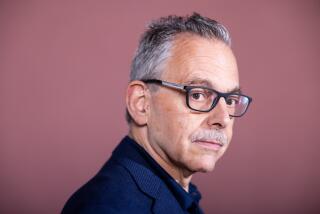Fuller Seminary Names Provost in First of 4 Key Appointments
In a key administrative appointment at Fuller Theological Seminary in Pasadena, the nation’s largest nondenominational school of ministry, a 49-year-old Christian philosophy and ethics professor has been named provost.
Richard J. Mouw, who joined the Fuller faculty four years ago, assumed the second highest post on the campus this week amid praise as a noted scholar, innovative thinker and bridge-builder with other faiths even though he remains, in his own words, a “conservative evangelical.”
Selection of the new provost has drawn interest in the evangelical world because the appointment is the first of four to take place over the next six years, a period of crucial transition for the 42-year-old school. Fuller boasts an on-campus student body of 1,600 seminarians and a total enrollment of nearly 2,900. Only a Southern Baptist seminary in Ft. Worth enrolls more students.
Hubbard to Step Down
David Allan Hubbard, seminary president since 1963, must step down from his post in 1995 when he turns 65. Because of other anticipated retirements, new deans also will be chosen for the schools of theology and world mission.
Hubbard has led Fuller from fundamentalist leanings to more moderate views, sometimes incurring charges that some professors using historical-critical methods were disloyal to the Bible. And he has brought in representatives of the miracle-oriented Pentecostal movement, sometimes at the risk of losing hard-sought intellectual respect.
Although the seminary has had a strong Presbyterian influence in the past, it is beholden to no denomination. It nevertheless faces steady scrutiny from theologically conservative Protestant supporters over whether it faithfully represents Bible teachings.
“The vision is constantly being renegotiated,” Mouw said. As a result, he said, “the selection of leaders here always sends signals.”
Hubbard Praises Mouw
Hubbard, without a provost since the death of Lawrence DenBesten in June, 1988, issued a statement praising Mouw as having “the ability and desire to keep us on course.”
Mouw is likely to reflect the Hubbard approach, according to George M. Marsden of Duke University Divinity School, whose 1987 book, “Reforming Fundamentalism,” describes Fuller’s evolution.
“His appointment puts a crucial link in place,” Marsden said by telephone. “Mouw combines a basic theological tradition with openness and an innovative spirit.”
Mouw said he will continue to encourage Fuller to address social problems, including peace and justice issues, and to endorse “full equality for women in leadership roles in the Christian community.”
And, Mouw already has been breaking ground in a third area, promoting an ongoing dialogue with Catholic and non-Christian groups.
Helps Lead Dialogue
For two years, he has co-chaired an evangelical-Roman Catholic dialogue with Msgr. Royale Vadakin of the Los Angeles archdiocese. The committee is close to publishing its first study paper on common interests as well as on tensions between Catholics and evangelicals, such as Protestant evangelizing in traditionally Catholic Latino communities.
Mouw also is an adviser on religious freedom to the American Jewish Committee and has been an observer at meetings of the multifaith Interreligious Council of Southern California. In congratulating Fuller Seminary on Mouw’s appointment, Rabbi Alfred Wolf of Los Angeles praised him as “an outstanding scholar . . . (who) knows how to build bridges between (people).”
His interfaith involvements do not foreshadow a change in Fuller’s evangelistic goals, Mouw said. Fuller is comfortable with its ties to an institute in Pasadena that trains missionaries to the Islamic world and with its link to the nationwide “Jews for Jesus” organization, which seeks Jewish converts, he said.
“My own view,” Mouw said, “is that it is important for evangelicals to share their faith with everyone and rather aggressively. But it is wrong to reduce Jews and others to ‘targets’ for evangelism. We have a lot to learn from the Jewish community and we see them as partners in various efforts.”
Mouw earned his doctorate in philosophy at the University of Chicago and taught for 17 years at Calvin College in Grand Rapids, Mich., a school affiliated with the Christian Reformed Church.
More to Read
Sign up for Essential California
The most important California stories and recommendations in your inbox every morning.
You may occasionally receive promotional content from the Los Angeles Times.










